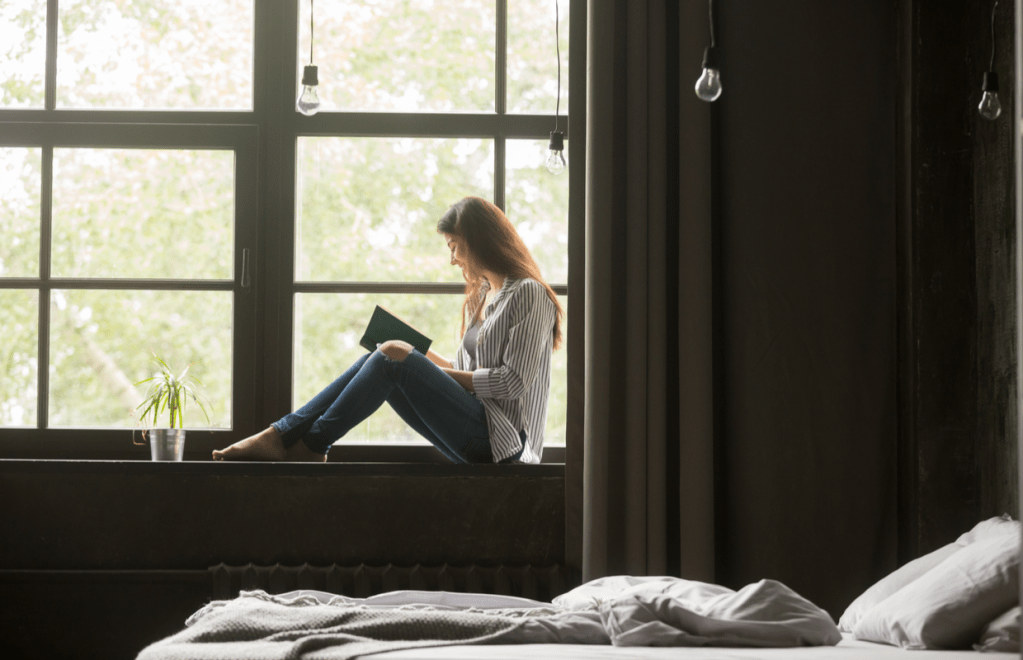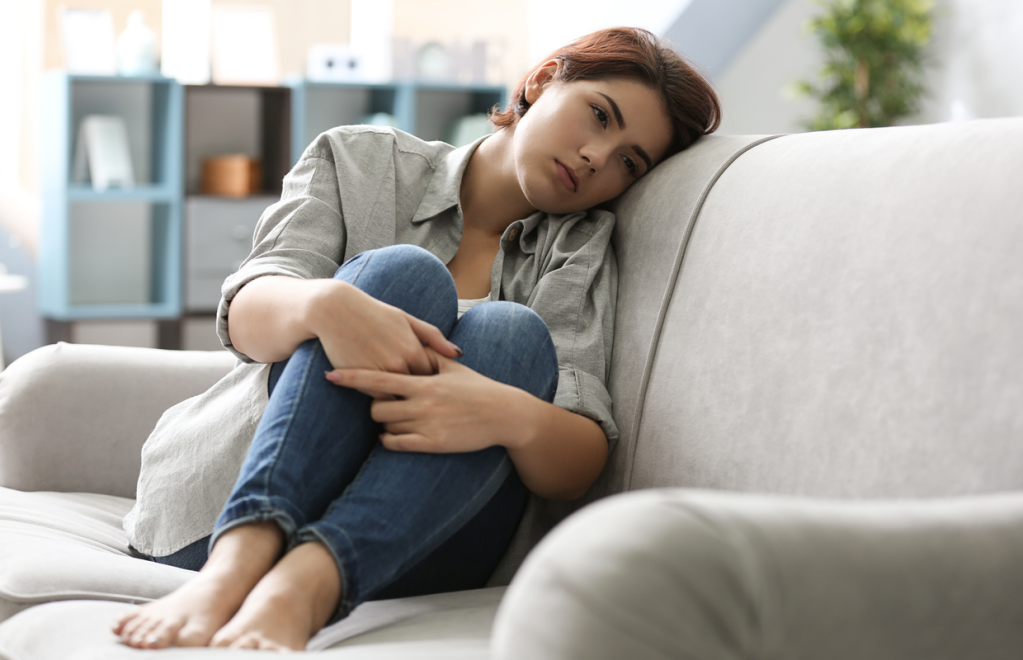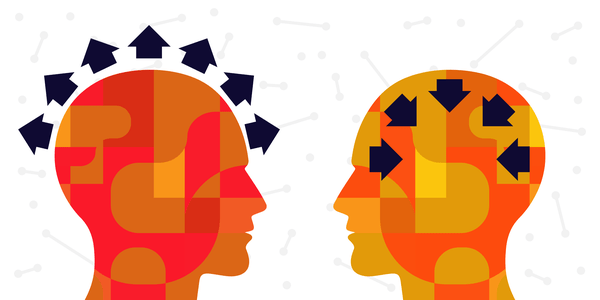Introvert hangover: how to recover from social events
Do you feel drained after a dinner party or get-together? You might be dealing with an 'introvert hangover'...

Everyone else seems to love dinner parties and get-togethers, so why do you feel like you’ve been hit by a bus afterwards? Chances are you’re an introvert and suffering the emotional fallout, or ‘hangover’, discovers Ruth Tierney. Here’s how to recover from an introvert hangover after social events…
Picture the scene: it’s Saturday night and you’re making small talk with a friend of a friend in a bar. At long last, you’ve ventured out to catch up with friends – but the overhead lights are jarring, the music is blaring and your ability to have a conversation seems to have fallen off a cliff.
You’re surrounded by people having the time of their lives. Yet despite sticking to the mocktails, you feel drained and emotional. You make your excuses and head home, only to collapse into bed knowing that tomorrow will be a write off as you feel so completely exhausted.
No, it’s not because you’re a party pooper or a wallflower (although people have probably called you all of those things), it’s because you’re an introvert, and you’ve overindulged on company, not cocktails.

What’s the difference between an introvert and extrovert?
When psychoanalyst Carl Jung first identified the introvert and extrovert personality types in 1921, the differences in their response to socialising was key. ‘Each person seems to be energised more by either the external world (extroversion) or the internal world (introversion),’ he wrote.
He explained that while extroverts recharge their batteries through socialising, introverts boost their energy by spending time alone, happy in their own thoughts or creative pursuits.
‘When I’m explaining the difference in energy levels to my clients, I use an analogy about an introvert waking up with five coins. In each social situation they encounter throughout the day, they spend a coin. By the end of the day, the coins are gone and they feel depleted,’ says Alison Rice, an introvert coach.
‘Extroverts wake up with no coins but gain one for each interaction, so by the end of the day they feel rich,’ Rice adds. Turning the phone to mute and curling up with a book is an introvert’s idea of bliss – and essential for conserving those coins.
Sound familiar? Then you’ll probably have experienced the slump that happens when you step out of your cosy comfort zone for any type of get-together – the so-called introvert hangover.
What is an introvert hangover?
Whether it’s a work conference or Sunday lunch, a social event can compromise your battery levels so severely that you feel overwhelmed, exhausted and tearful afterwards (and sometimes during). ‘It starts with feeling tired, then comes brain fog, difficulty with word retrieval, and glazing over as you begin to lose connection with the conversation,’ explains Rice.
There are frequently physical symptoms with an introvert hangover, too, says Dee Johnson, a psychotherapist at the Priory Hospital Chelmsford. ‘Being over-stimulated by a group setting will mean an introvert will likely feel anxious, with the stress hormones cortisol and adrenaline pumping through their body.
‘The effect of your heart rate being up and your hormones surging means that, when you leave the event, you feel exhausted and could experience weakness, headaches and even stomach upsets,’ Johnson adds.

How long does an introvert hangover last?
The effects of an introvert hangover, also known as social burnout, can last from a couple of hours to a couple of weeks. ‘It’s like jet lag,’ continues Johnson.
‘You don’t get over that after one goodnight’s sleep, and I’ve known introverts to take weeks to recover from a big social event. It’s not just physical exhaustion they’re dealing with, but the need to process everything.
‘Introverts are absorbers; they are detail orientated, listening intently, picking upon body language and tone, and then running conversations over in their minds repeatedly afterwards. It’s no wonder socialising drains them,’ Johnson concludes.
Any form of communication, even as simple as a phone call or text, can feel like an arduous task once the introvert hangover has kicked in. While the social burnout can be more severe after a big, noisy gathering, it can also happen after spending time with your nearest and dearest.
‘It’s not that you dislike socialising, it’s that it takes a lot out of you, even just seeing your close group,’ says Rice. ‘It happened to me last weekend when having lunch with my family.
‘When I arrived I felt great and was engaged in the conversation. However, about three hours in my eyes started to feel heavy and I got that slump. I wasn’t being as enthusiastic in my responses, and I began to disconnect. I had an overwhelming sense of needing to step away,’ Rice explains.
What happened at Rice’s family meal is common – introverts still want to see people and have fun, they just have a limit on the time they can spend doing these things before they feel floored.

Research into the brains of introverts and extroverts
The contrasting cut-off points of the loud and quiet ones among us aren’t just anecdotal. Neuroimaging technology has been able to show how different the brains of extroverts and introverts are.
A study at Harvard University found that introverts tend to have larger, thicker grey matter than extroverts in their prefrontal cortex (a region of the brain linked to abstract thought and decision making).
This explains why introverts prefer to ponder and analyse, while extroverts are more spontaneous. Further research has looked into the differences in reactions to dopamine, the brain’s reward chemical that creates a buzz and makes us take risks.
Introverts are very sensitive to dopamine, while extroverts are less receptive to it, so need more to get that feel-good hit – which they chase via social encounters and even risky behaviours.
This was backed up by a study in 2005, where the brains of participants were scanned while gambling. Extroverts showed a stronger response in two areas of the brain associated with rewards than the introverts.
Benefits of being an introvert
What’s important to remember is that neither personality type is superior – they’re just different, as is the way they get their kicks.
‘If you don’t fully appreciate the benefits of being an introvert – for example, calmness and listening skills – you may feel guilt and shame, in addition to exhaustion, after a night out,’ says Johnson.
‘You will play negative thoughts on a loop, such as “I was too quiet again” and “Why can’t I belike everyone else”. But this self-shaming attitude can be so harmful to your self-esteem.
‘I see a lot of clients who feel bad for being shy or socially anxious, but I point out that they’re presenting more as an introvert, and that’s no bad thing,’ Johnson adds. It certainly hasn’t done self-identifying introverts Bill Gates and J. K. Rowling any harm!

How to recover from (and avoid) an introvert hangover
1. Change your self-talk
If you’re plagued by a negative monologue when experiencing an introvert hangover, use the Socratic method of questioning your own thoughts and switching perspective.
‘Write down the statements you’ve been beating yourself up with and notice how harsh you’re being. Would you talk to a friend like that?’ asks Johnson.
‘Make your inner voice more nurturing. Write another list of things that went well, such as the amount of information you absorbed. Accept that’s how you are, or think, “Okay, I’m not happy with how it went, so what can I do differently next time?”
2. Stay sober at social events
’It’s tempting to get drunk in challenging social situations, but this will exacerbate difficulties,’ says Johnson. ‘Stress hormones make you dehydrated because you perspire and go to the loo more. Plus, a dehydrated brain goes into crisis mode, making you feel lethargic.
‘Additionally, alcohol knocks out your prefrontal cortex; you’ll find it hard to process a conversation, then become even more detached’. Plus, you’ll end up with a boozy hangover on top of the introvert one!
3. Have an exit strategy
Know your boundaries and plan for them, says Rice. ‘Prior to going out, have a clear idea of how long you’re willing to stay. Explain when you’ll be leaving to your host at the beginning of the event, to manage their expectations. Do what’s right for you and don’t feel guilty.’
4. Plan a duvet day to recover from your introvert hangover
‘Schedule in solitude time after a draining event, because you value this. Mark it on the calendar – if you don’t diarise it, it won’t happen,’ says Johnson. ‘It could be a yoga session or a dog walk – green spaces restore energy, as they boost mood-balancing hormones.’

5. Avoid small talk at social events
‘Introverts are drained by small talk, preferring deep conversations that match their inward-thinking personalities,’ explains Rice. ‘If you’re in a group, find another quiet person to have a one-to-one with. Or go armed with a few questions so that you can put your great listening skills to use.’
6. Take time out
When you feel yourself flagging, step outside for a breather or even just go to the toilet. ‘Do grounding techniques, such as breathing exercises or running your hands under the cold water. Mindfully feel that sensation,’ advises Johnson.
7. Know you’ll have good and bad days
According to Jung, nobody is a pure introvert or extrovert; there is a spectrum and your place on that sliding scale means you may occasionally enjoy a big rave-up. Be aware that your introvert tendencies can become more pronounced due to mood and circumstance.
‘Check in with your unconscious drivers,’ says Johnson. ‘If you’re going through a period of stress, bereavement or physical illness, you probably won’t be able to tolerate as much socially.’
More inspiration: An introvert’s guide to loving an extrovert
Words: Ruth Tierney | Images: Shutterstock









